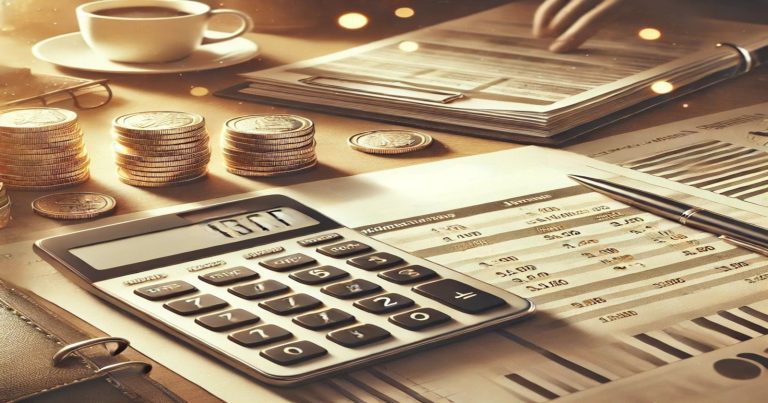Understanding the budget expenditure of class 12 is essential for economics students as it forms a significant portion of the government budget concept. Budget expenditure is the government’s total spending on various sectors, including education, health, defence, infrastructure, and social welfare. It aids in managing the development of the country, its economic growth, and the general public welfare. This article will take you through the meaning, constituents, goals, and kinds of budget expenditure to aid you at the top of your Class 12 economics exams.
What is Budget Expenditure?
Budget expenditure refers to the money the government intends to spend in a financial year. This includes both capital and revenue expenditure, which are utilized for the development of the country as well as day-to-day working.
Accordingly, the spending is allocated as per the government’s economic plans and prepared each year for each financial year. In India, it is from April 1 to March 31. It is categorized into capital and revenue expenditure so that the development-related and routine costs can be followed effectively.
Components of Budget Expenditure
The government divides the budget expenditure into two major constituents: Capital Expenditure and Revenue Expenditure. Thus, understanding the same is really important for class 12 economics.
Revenue Expenditure
Revenue expenditure is the money that the government spends on its daily activities. It covers routine costs that are required to keep the running of the government in a good shape. Such spending does not create new physical assets nor add to the productive strength of the country.
Examples include paying salaries to government employees, interest on loans, subsidies for food, fuel, and fertilizers, and maintaining public buildings and roads. Revenue expenditure occurs frequently, does not create any assets, and is merely a source through which the government meets its cost of running the show.
Capital Expenditure
Capital expenditure refers to the amount of money that a government spends buying, building, or improving long-term physical assets such as roads, buildings, and machines. This form of spending enhances the country’s capacity to produce since it boosts productive capacity and results in the generation of valuable future assets.
Common examples include building highways, bridges, and dams, buying defense tools, making investments in public sector companies, and providing loans to states or other countries. Capital expenditure is not a recurring cost, generates long-term assets, and enhances the country’s productivity.
Objective of Budget Expenditure
The government has set specific objectives for its spending to ensure stability and growth of the economy. Understanding the budget expenditure objectives is crucial for academic and practical purposes.
- Promoting Economic Growth: Government investment in infrastructure, education, and healthcare helps spur long-run economic growth. The grounds for this include job opportunities and productivity. An example would be, spending in digital infrastructure improves the IT sector with job creation.
- Reduce income inequality: Welfare schemes, subsidies, and social programs are to be used to bridge the gap between the rich and the poor. Example: Schemes like MGNREGA provide employment to rural households.
- Ensuring Social Welfare: Budgetary spending ensures universal access to minimum needs such as health care, education, sanitary facilities, and safe drinking water. Example is The Midday Meal Scheme, which provides midday meals at schools, results in better nutrition for schoolchildren.
- Maintaining Economic Stability: The government can regulate inflation and economic recession by altering expenditure. Higher spending during a slowdown increases demand and stabilizes the economy. Example is during the COVID-19 pandemic, the Indian government declared relief packages for businesses and individuals.
- National Defense and Security: Most of the budget being spent is for defense to maintain security of the nation. Example is Funds allocated for defense equipment, training, and border security forces.
Balanced, Surplus and Deficit Budget
Understanding the type of budget can help understand the government’s revenue and expenditure sources. The government can have either a balanced, surplus, or deficit budget in accordance with the financial condition.
Balanced Budget
A balanced budget is when the income of the government equals the amount it spends. In simpler terms, money that the government gets from sources like taxes equates to how much it uses in public services. The formula is: Government Revenue = Government Expenditure.
Fiscal discipline, avoiding risk of inflation, and overall stability of long-run economy result from a balanced budget. A government, with such a budget, has reduced discretionary spending capacity during an economic downturn. Reducing important expenditures to save would decelerate the economy even more.
Surplus Budget
A surplus budget takes place when the government earns more money than it spends. Therefore, its revenue is greater than its expenses. The formula reads: Government Revenue > Government Expenditure. It simply states that the government has some leftover funds after spending its costs.
A surplus budget is helpful in decreasing public debt and saving money for future emergencies. However, at the same time, it also shows that the government is not spending enough on welfare programs. Under-spending can slow down economic growth because important sectors will not get adequate financial support.
Deficit Budget
A deficit budget is said to occur when the government spends more money than it earns. This is commonplace in developing economies such as India to increase economic growth. It takes the form of: Government Expenditure > Government Revenue. Most of the gap is covered through borrowing.
An unbalanced budget increases economic growth during recessions and aids the development of infrastructure and social programs. However, it adds to public debt and may inflate money if not managed correctly. The country’s finances can even go strained due to borrowing if it goes too high.
Budget Expenditure FAQs
1. What is budget expenditure in Class 12 economics?
Budget expenditure basically refers to total money spent by the government throughout a financial year, which might be in respect of revenue expenditures or capital expenditure.
2. What is budget expenditure constituted of?
Its two major items are Capital Expenditure and Revenue Expenditure. Expenditure relating to creation of assets is on capital account; the rest covers current operations.
3. What is objective of budget expenditure?
It encompasses objectives such as economic growth, income inequality, social welfare, economic stability, and national defense.
4. What are the differences between balanced, surplus, and deficit budgets?
Balanced budget refers to a situation where revenue and expenditure are the same. In a surplus budget, revenue exceeds expenditure, while in a deficit budget, expenditure exceeds revenue.
5. What is the difference between capital expenditure and revenue expenditure?
Capital expenditure increases the creation of assets and thereby increases economic growth, while revenue expenditure is meant for day-to-day government running without asset creation.


